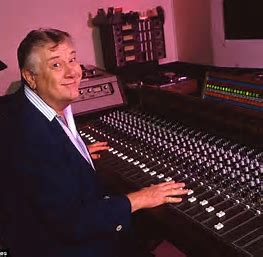I met Sam Phillips in the early 1960s when Sun Records was in its location on Madison Ave. in Memphis. The place was a former Midas Muffler Shop and Hart's Bakery that Sam gutted and turned into Sun Records. I was fortunate to have a friend, Lou Harris, one of Elvis' Memphis Mafia, who knew Jack Clement, Phillips' top A&R (artist & repertoire) man. These were the people who "rode" the board, a mechanical contraption allowing them to mix sound for the records.
Sam Phillips would have been 100 on January 5, past, but the music he gave to the world will last 100s of years longer. I was fortunate in being able to hang around Sun Records regularly with my friend Lou Harris during the early days. Lou died a few years back and is no doubt sharing a stage up there somewhere with Phillips and Clement. Jack was Johnny Cash's A&R man and I was lucky one day to walk in Sun Records during one of their recording sessions. It was fantastic.
Never was lucky enough to see Elvis there but did have the opportunity to meet
him during that period where I worked at WMC-TV. I was setting up an evening show I produced when our receptionist ushered him into the studio and told me Elvis wanted to look around. Actually Elvis wanted to know just how television worked since he was going to be on the Ed Sullivan Show the next Sunday. I showed him around. put him on camera and introduced him to the guys in the control room.Elvis seemed almost shy but was very gracious in his thanks. Before he left, he pulled a Zippo lighter out of his pocket, held it up and asked me if I thought something like this would sell with his face on it; a Colonel Parker idea. I told him anything would sell with his face on it. He thanked me again and of course his following Sunday TV appearance is history. Sam Phillips sold Elvis' contract to RCA Records for a grand total $40,000, the largest amount paid a single performer up to that time.
Phillips said he was not necessarily conscious of "creating a new kind of music." His comment...
"I think I was conscious of letting out the insides, emotional insides, of people. And that was the challenge, to a great extent," Phillips added. "Oh man, I loved the music ... I dearly loved it. So this was a beautiful experience — it still is, to see the influence that it's had around the world."
Sam Phillips 100 years, a MUST WATCH...
‘’A day didn’t go by when I didn’t hear black folks singing in the cotton fields. Did I feel sorry for them? In a way I did. But they could do things I couldn’t do. They could outpick me. They could sing on pitch. That made a big impression on me.’’
My uncle had two large cotton plantations in Mississippi and his Black supervisor, courageously in those days called Man, took me in the fields during each of my visits and I experienced the music Phillips was talking about. One thing I did realize, it was completely natural for the Blacks, the prime reason it is eternal in the music. On his way to Sun Records Sam Phillips worked in several radio stations across the South, one of which, WREC, I worked there in television.
Phillips didn't want to copy or duplicate...
“He wasn’t looking for somebody who sounded like someone who was already out there,” Roland Janes, former Sun session guitarist, said in a 2003 interview with Scripps Howard News Service. “If you had a unique sound musically or vocally, that would impress him.”
I could go on for hours with the history of this music icon but let me urge you to read the two articles here and here. There are also several pictures and more information on Sam Phillips and Sun Records here.







